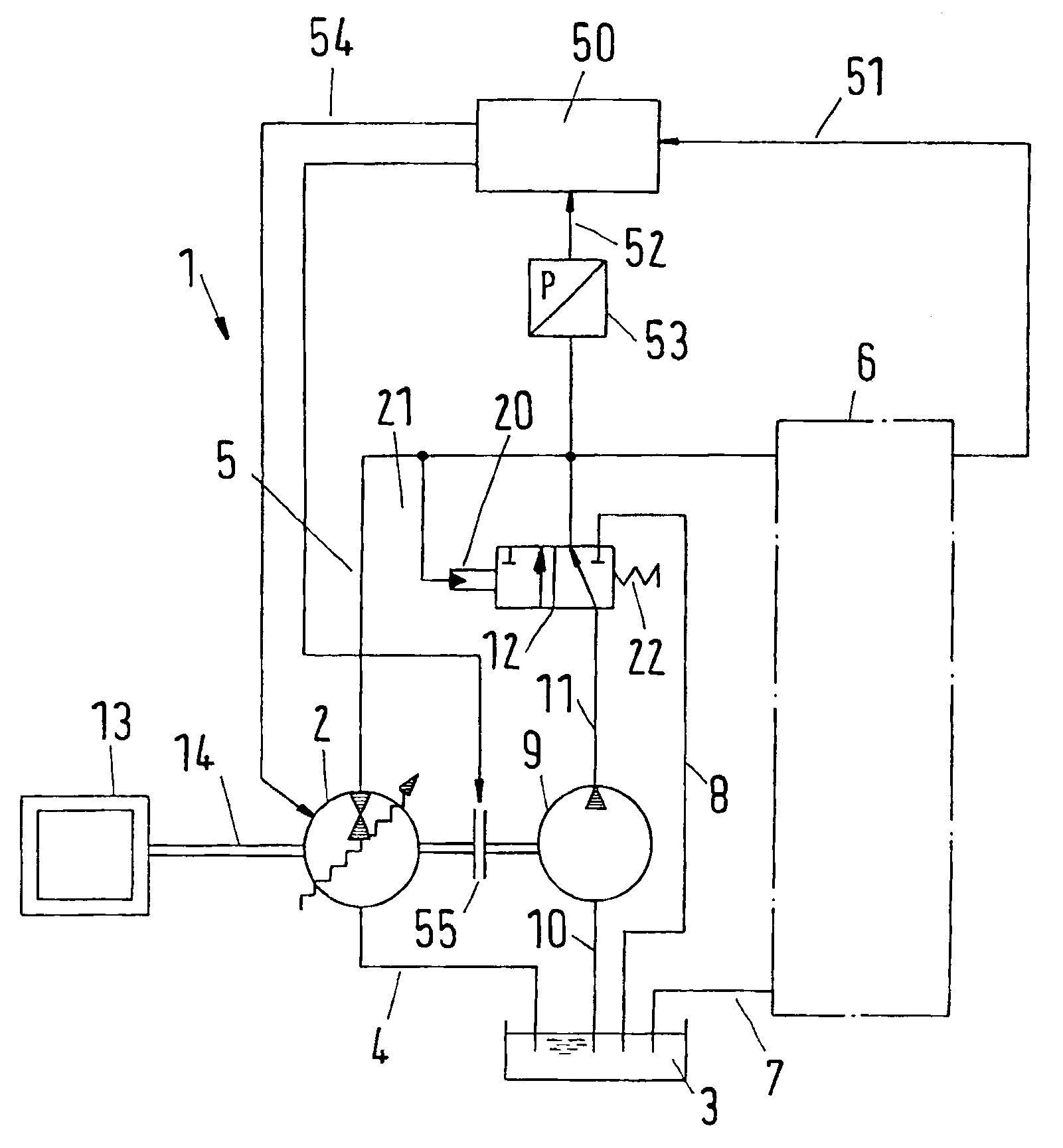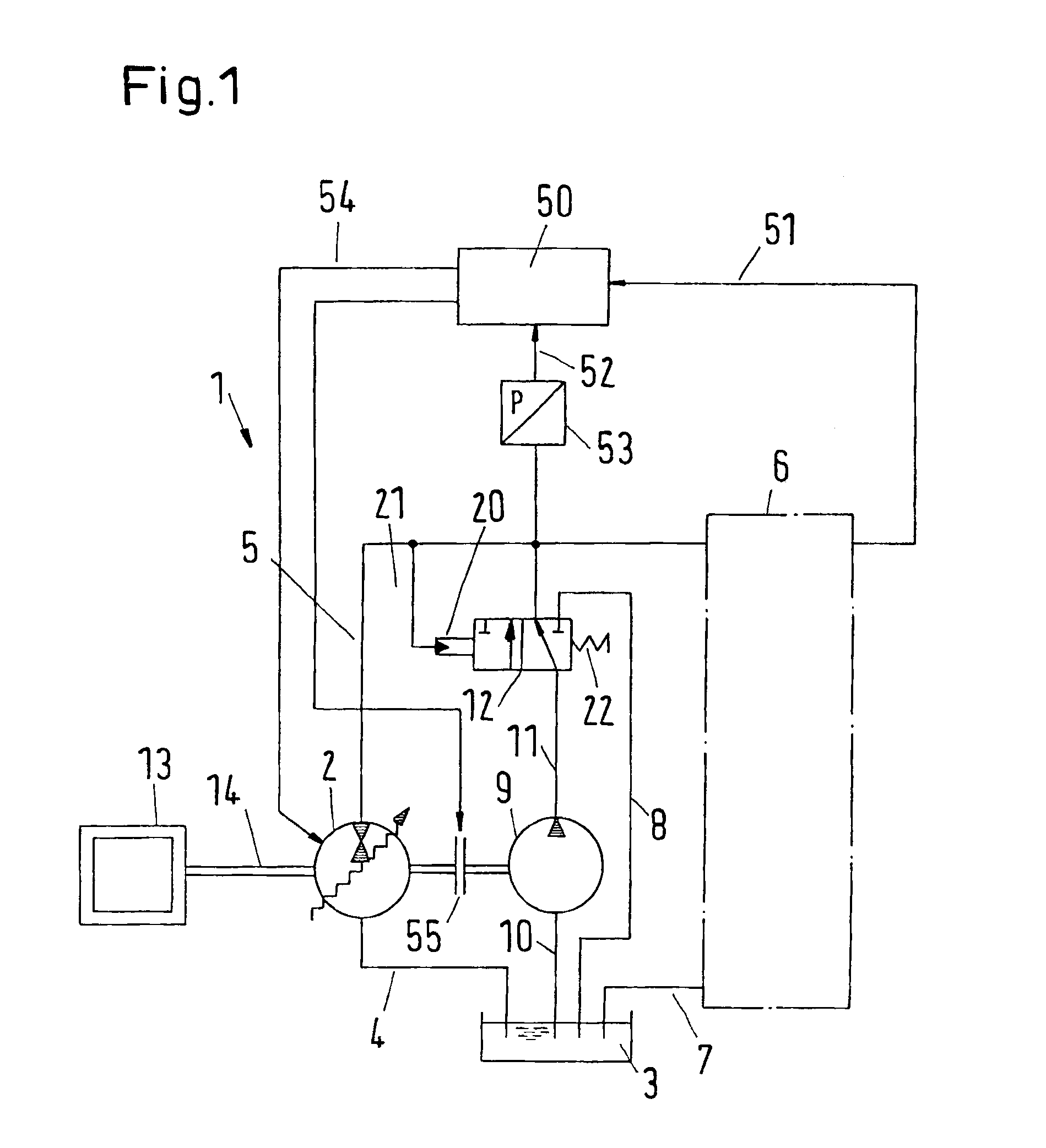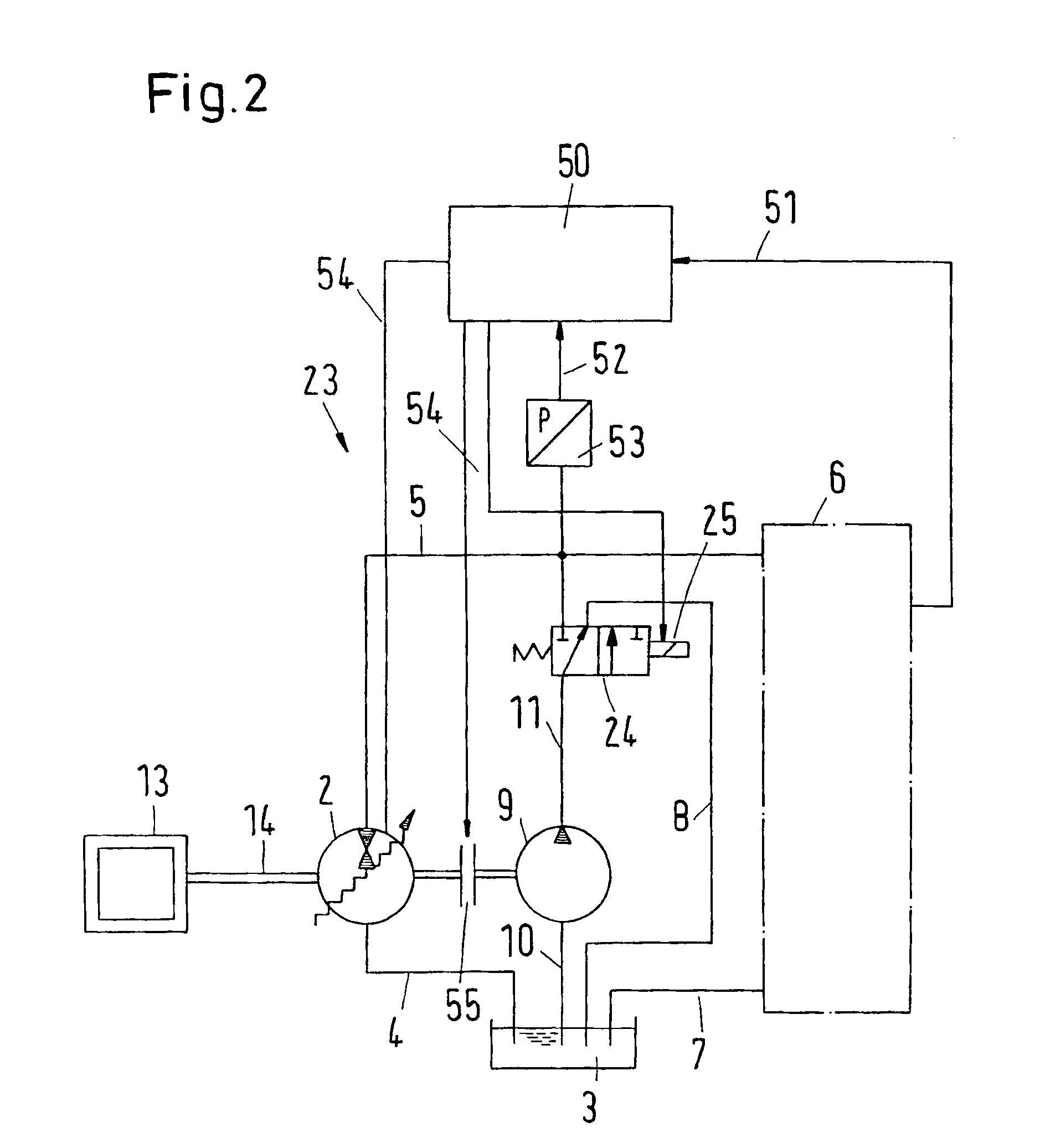Hydraulic system with supplement pump
a technology of hydraulic system and pump, applied in the direction of pumps, mechanical equipment, liquid fuel engines, etc., can solve the problems of inability to discharge high pressure fluid, particularly bad dumping of high pressure fluid, and high loss, and achieve energy-efficient hydraulic fluid flow and low cost.
- Summary
- Abstract
- Description
- Claims
- Application Information
AI Technical Summary
Benefits of technology
Problems solved by technology
Method used
Image
Examples
Embodiment Construction
[0043]FIG. 10 shows a pressure versus flow rate diagram 59, illustrating different working modes I and II. The flow rate is plotted in liters per minute on the abscissa 16. The system pressure is plotted in bars on the ordinate 17, with the maximum required system pressure represented by line 60. In the present example of FIG. 10, the power available from a mechanical power supply, represented by curve 61, exceeds the power which could potentially be drawn from the power supply by the hydraulic system. The maximum power which the hydraulic system could consume is located at the upper right corner of area II, at the intersection of the maximum required system pressure line 60 and the maximum required flow rate line 62. As can be seen from FIG. 10 there is some excess mechanical power supply in the depicted example. This can be seen from the distance between mechanical power limit line 61 and the upper right corner of area II. It is to be understood, that all system pressure / flow rate...
PUM
 Login to View More
Login to View More Abstract
Description
Claims
Application Information
 Login to View More
Login to View More - R&D
- Intellectual Property
- Life Sciences
- Materials
- Tech Scout
- Unparalleled Data Quality
- Higher Quality Content
- 60% Fewer Hallucinations
Browse by: Latest US Patents, China's latest patents, Technical Efficacy Thesaurus, Application Domain, Technology Topic, Popular Technical Reports.
© 2025 PatSnap. All rights reserved.Legal|Privacy policy|Modern Slavery Act Transparency Statement|Sitemap|About US| Contact US: help@patsnap.com



